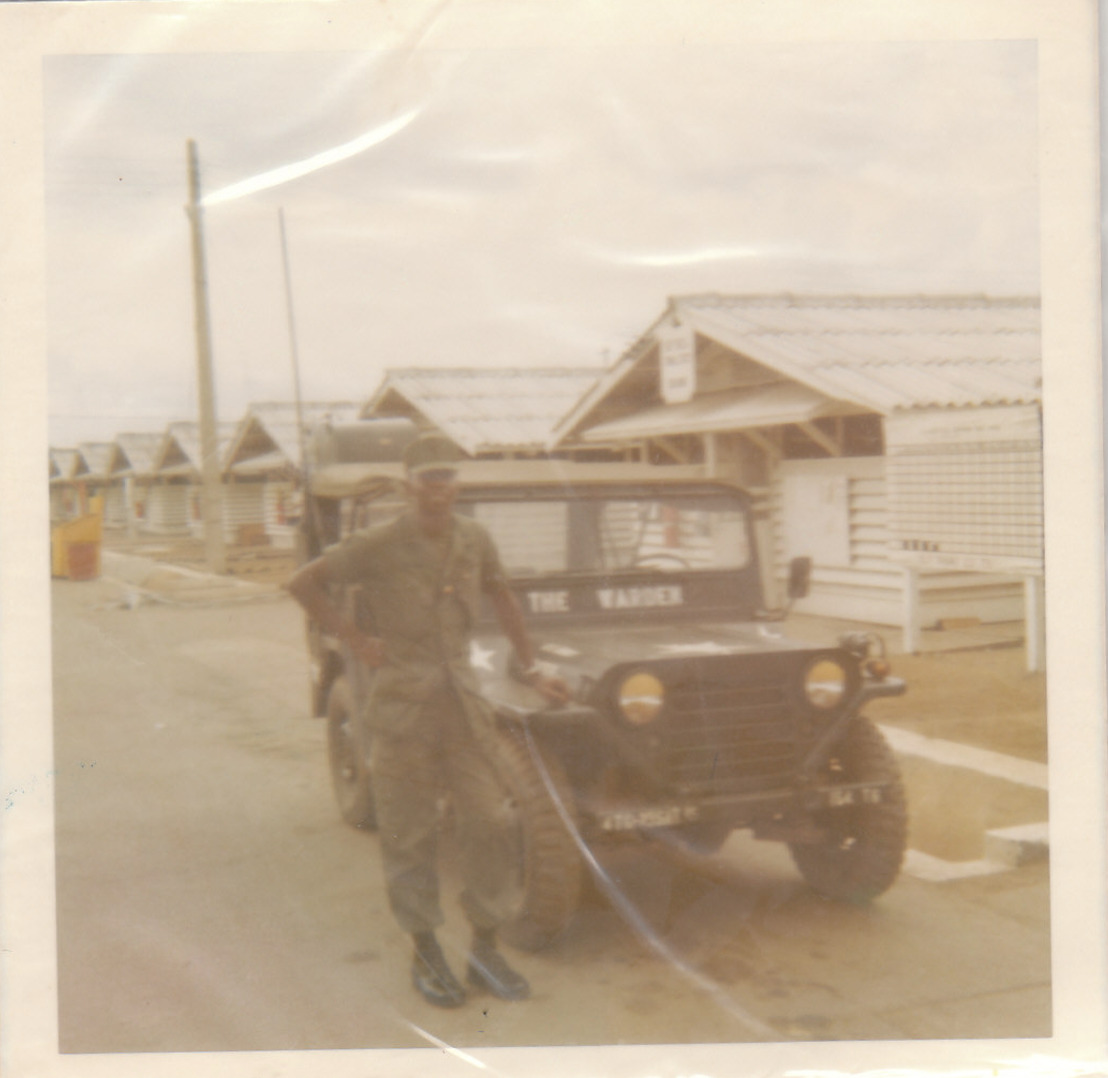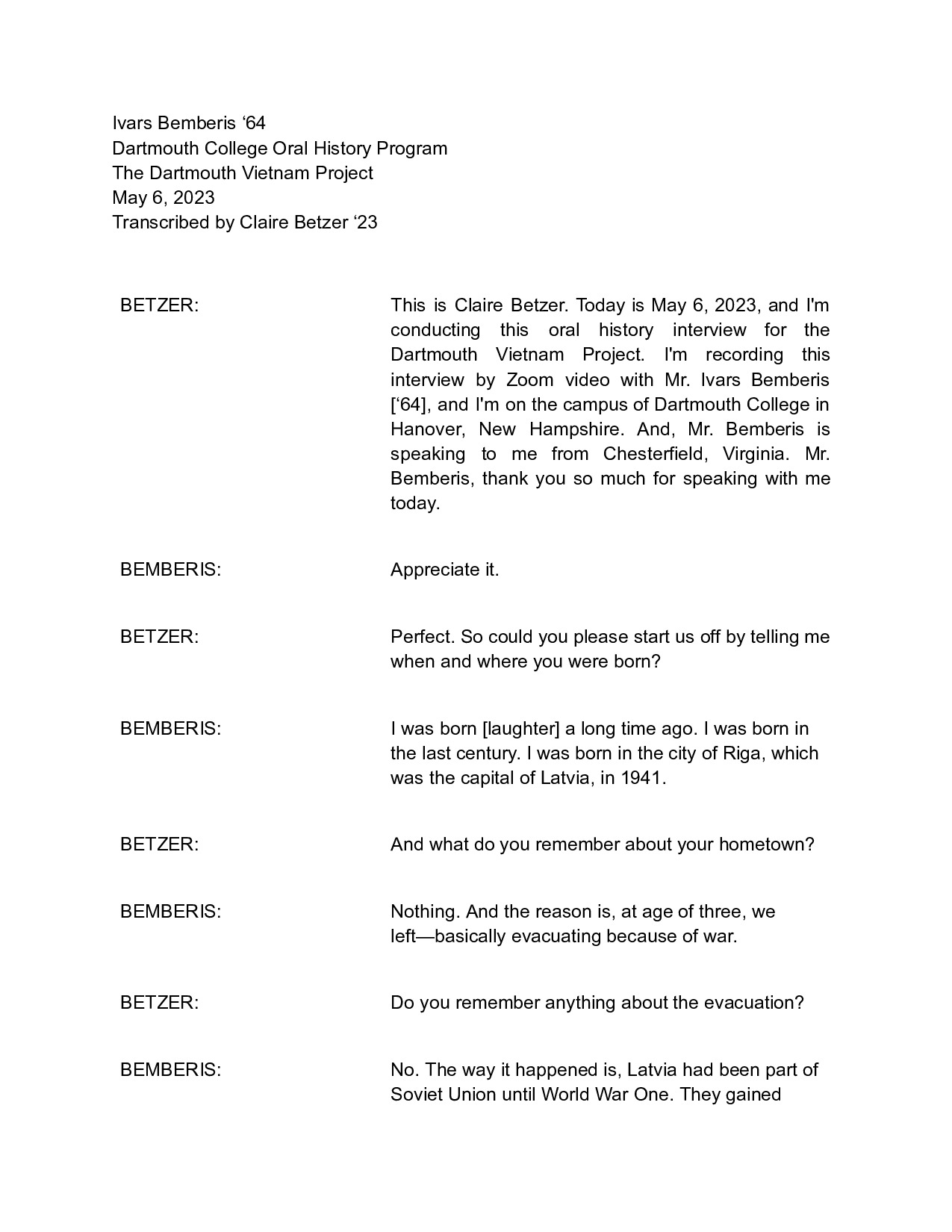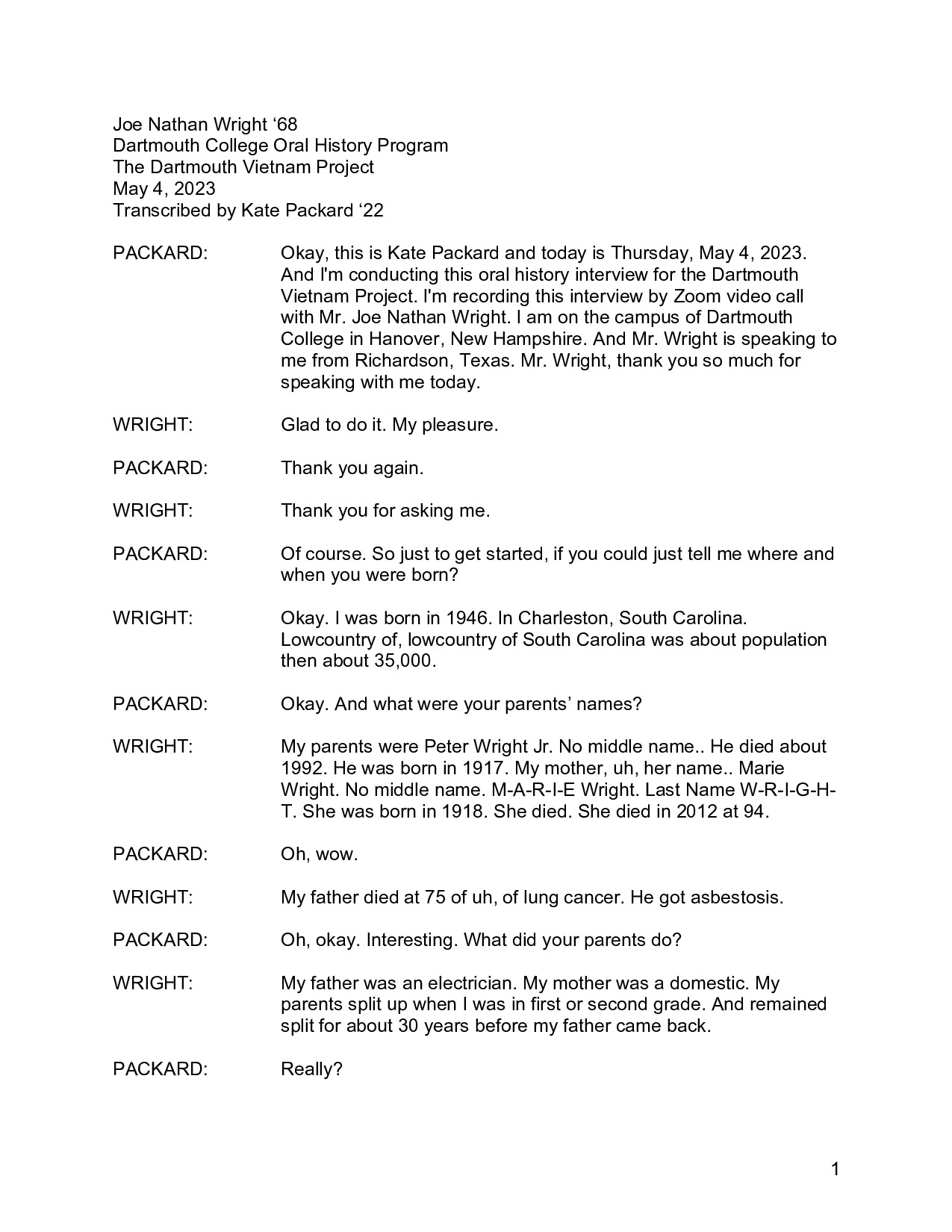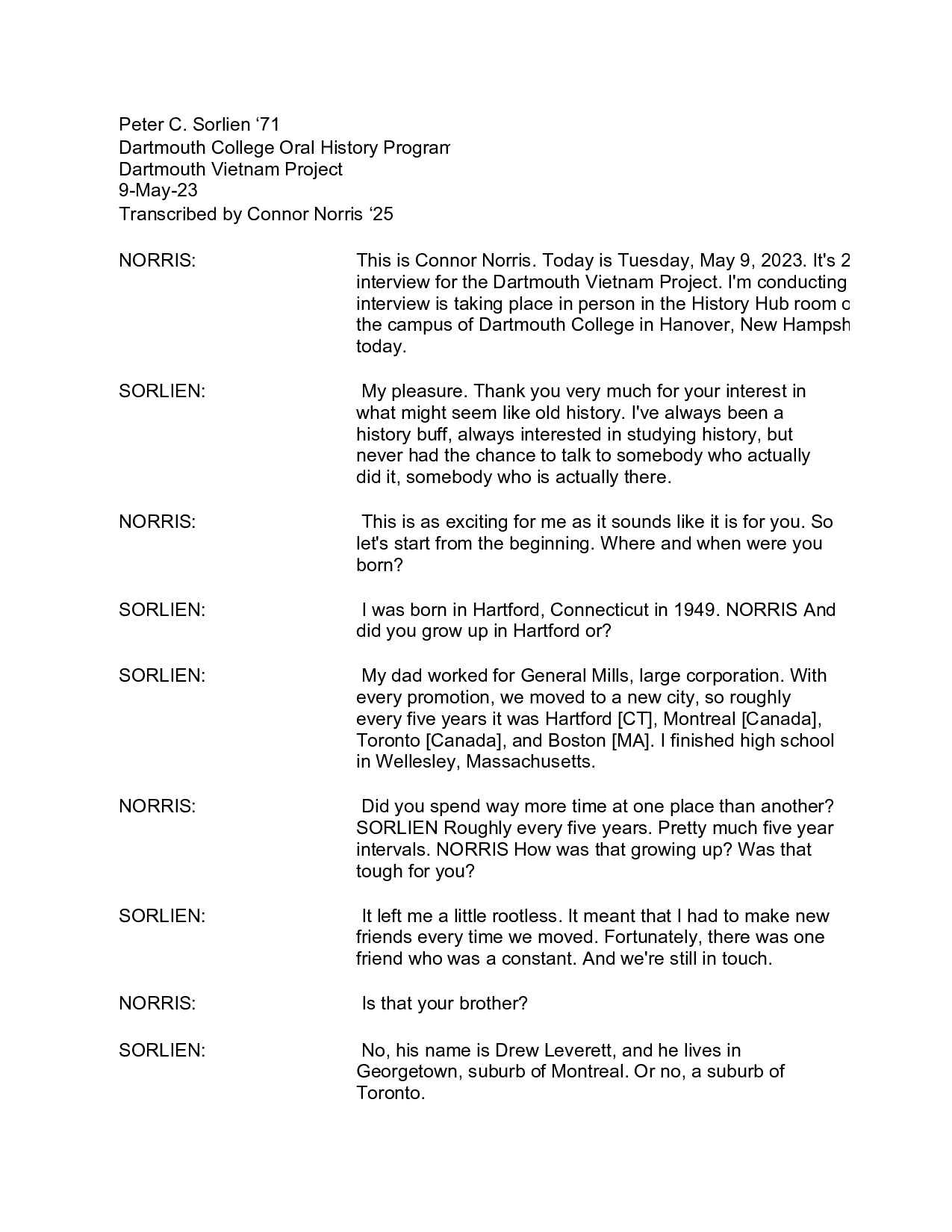Our Dartmouth Vietnam Project Narrators
As mentioned, we each conducted an oral history interview for the Dartmouth Vietnam Project. On this page, we have provided descriptions of our narrators, as well as links to the interview recordings and transcripts.
Ivars Bemberis '64
Interviewed by Claire Betzer '23
Click here to listen to the full interview with Ivars Bemberis '64. The interview transcript is linked at the bottom of this page.
Ivars Bemberis '64. Born in Latvia, Bemberis discusses his childhood in German displaced persons' camps as a result of World War II. He describes his journey to the United States and the impact of his mother and father on his world outlook. At Dartmouth, Bemberis reflects on his college years through the lens of being a student on scholarship. He explains his transition from undergraduate to graduate school to officer's basic at Fort Belvoir. Bemberis describes civil affairs school and his deployment to the 41st Civil Affairs Company in 1967. He details his assignment to Edap Enang Resettlement Resettlement Camp, and reflects on the connection between his experience returning home to his wife and young son. Finally, Bemberis shares how his Vietnam service continues to forge connections.
Joe Nathan Wright '68
Interviewed by Kate Packard '22
Click here to listen to the full interview with Joe Nathan Wright '68. The interview transcript is linked at the bottom of this page.
Joe Nathan Wright, Dartmouth Class of 1698, was born and raised in Charleston, South Carolina. The city of Charleston was segregated for the duration of Wright’s childhood. As a Black boy, he attended school with only other Black children. He prioritized school, as was encouraged by his mother, and loved to read. It would serve him well, as he was accepted into Dartmouth College, matriculating in the fall of 1964. Wright spoke of his introduction to Dartmouth wistfully and emotionally, looking back on a time bursting with fond memories. At Dartmouth, Wright was the first Black student to rush Pi Kappa Psi fraternity. As a result of racism towards Wright from a Pi Kappa Psi chapter at another university, the fraternity went local, becoming Pi Sigma Psi.
His freshman year at Dartmouth, Wright joined Army ROTC, a decision motivated by his lifelong desire to be a military officer. He chose to participate in ROTC despite not having supported U.S. involvement in Vietnam. He placed an advertisement in the Manchester Union Leader along with other ROTC cadets supporting antiwar candidate Eugene McCarthy for President over Lyndon B. Johnson. Wright would remain in ROTC for the duration of his college career, graduating as the commander of the Drill Team and a Distinguished Military Student. He then served on active duty as a Second Lieutenant in the Army Transportation Corps for two years: first stateside, where he met his wife, Lola, then in Vietnam. Lola served in Vietnam at the same time as Wright as a Captain in the Army Nurse Corps. Wright was awarded a Bronze Star for his service in Vietnam. Looking back, Wright notes that both Dartmouth and the Army had positive impacts on his life. It was Dartmouth, however, where Wright forged lifelong friendships he cherishes to this day.
Peter Sorlien '71
Interviewed by Connor Norris '25
Click here to listen to the full interview with Peter Sorlien '71. The interview transcript is linked at the bottom of this page.
A member of the Dartmouth Class of 1971, Sorlien’s time at Dartmouth was heavily influenced by his involvement in Anti-War activism against the Vietnam War. Arriving at Dartmouth in the fall of 1967, Peter enrolled in the College’s ROTC program, succeeding his brother, Cai Sorlien ‘67, who served in Vietnam in 1967-68. In his second term on campus in the winter of 1968, Peter became more skeptical of the War and began participating in the Anti-War Movement. On February 28, 1968, Peter protested on the Green in his ROTC uniform and was subsequently dismissed from the military program. Sorlien discusses what moved him to stand up against the war, coming back to a different Dartmouth after going abroad to France and Germany in 1970, and the lasting effects of the war on his outlook on life and institutions.






